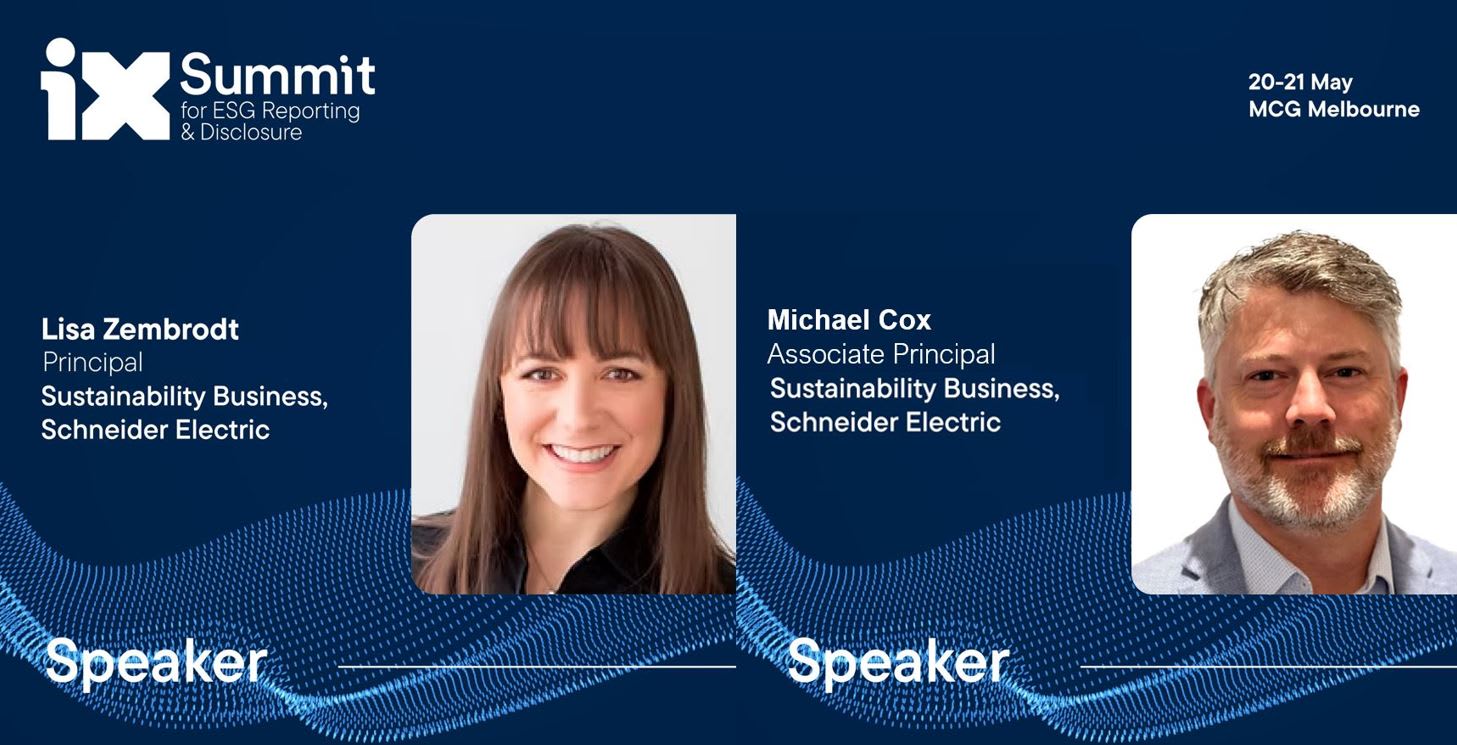Schneider Electric Sustainability Business at Impact X ESG Summit Melbourne
Our Sustainability Business in Australia is proud and excited to be at the upcoming Impact X ESG Summit, with the theme of ‘Navigating the complexities of ESG standards and compliance’. The newly legislated climate disclosure laws present a significant change to reporting and director responsibilities, impacting not only the largest companies across the country but also thousands of small and medium enterprises.
Australia’s role within the global sustainability transformation
With the adoption of internationally aligned sustainability reporting standards, Australia is now firmly a part of a broader global movement. As jurisdictions such as the UK, EU, Singapore, and now Australia implementing mandatory reporting requirements, alongside the global sustainability disclosure framework set by the International Sustainability Standards Board (ISSB), a new global economic structure is beginning to take shape.
This shift brings both challenges and opportunities for Australia. Historically, the Australian economy has been heavily reliant on carbon-intensive industries, particularly the mining of fossil fuels such as coal and oil. As a significant global exporter of fossil fuels, with a substantial portion of exports being carbon-intensive resources, we face complex transition risks that require careful management. However, Australia is well-positioned to thrive in the clean energy economy of the future due in part to its rich renewable energy resources, highly skilled workforce, and sophisticated financial markets.
The quality of our corporate disclosures will play a pivotal role in shaping international perceptions of Australia’s economic prospects. Transparent and robust reporting will elevate Australia’s position in international capital markets and strengthen the competitiveness of Australian businesses in a world increasingly focused on carbon accountability.
While the initial focus of the Australian Sustainability Reporting Standards (ASRS) framework is on climate disclosure, there is a clear trajectory that it will move toward broader sustainability reporting that includes topics such as biodiversity, nature, and social impacts. This progression indicates a growing recognition that climate change is part of a broader sustainability challenge. Forward-thinking companies are already preparing for this expanded scope, and by building integrated sustainability governance and reporting capabilities now, these companies will be better equipped to adapt to evolving reporting requirements.
From Reporting to Action
While this is a unified approach to collective climate action, the success of Australia’s sustainability reporting framework will be measured not only by the quality of disclosures, but by the tangible changes in business practices it inspires.
It is important to realise that climate change is not merely a risk to be managed but an opportunity to boost innovation, enhance efficiency, and drive growth. Companies that view the low-carbon transition as a springboard for progress and a source of competitive advantage are proactively adapting to these changes. They’re not only enhancing their compliance and reporting practices but also strengthening their reputational capital and stakeholder trust, making them poised to succeed in Australia’s future economy.
Schneider Electric’s expert consultants and focused software and data solutions can support you with compliance reporting and capturing opportunities that lead to competitive advantage in the transition. To learn more, sign up to view our-Australian Climate Reporting webinar-and get in touch with us today.
